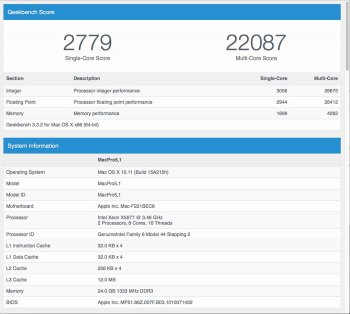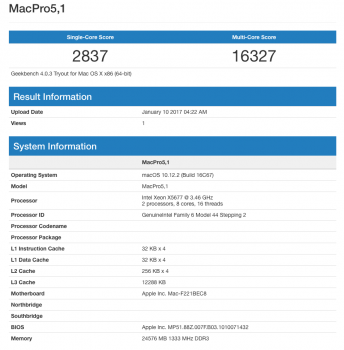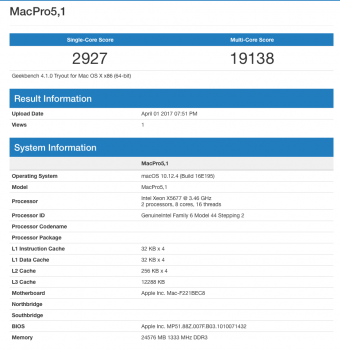I am really puzzled by the last release of Geekbench, Geekbench 4.1. After releasing Geekbench 4.0 last year, which changed some parameters that drastically lowered scores I was puzzled. Now Geekbench has released Geekbench 4.1 that raises scores. My cMP's configuration has not changed through all all of this. But, now I am even more puzzled. There seems to be no baseline. To me, the scores are meaningless.
Lou
Lou





